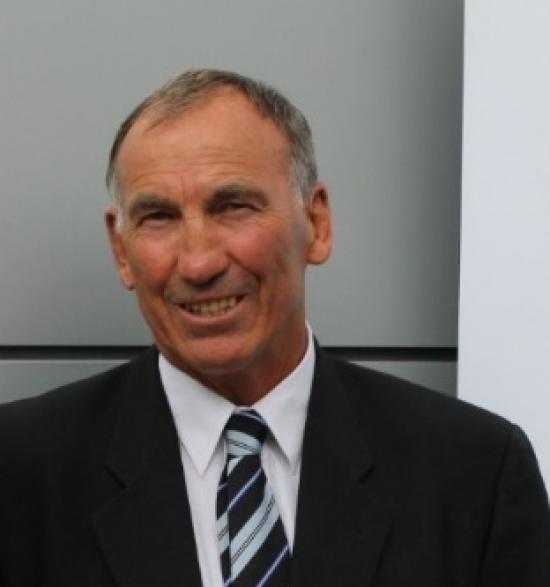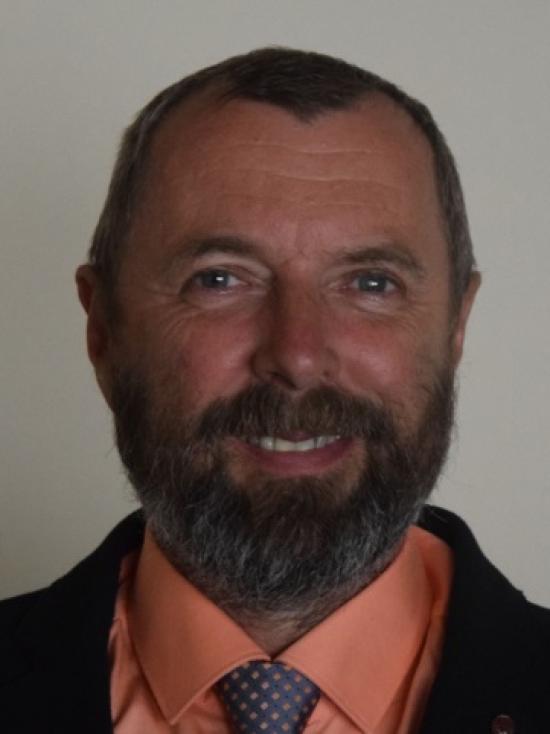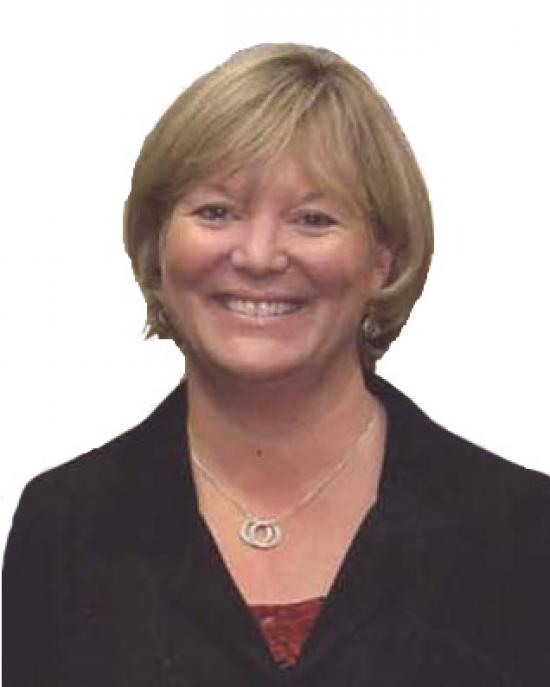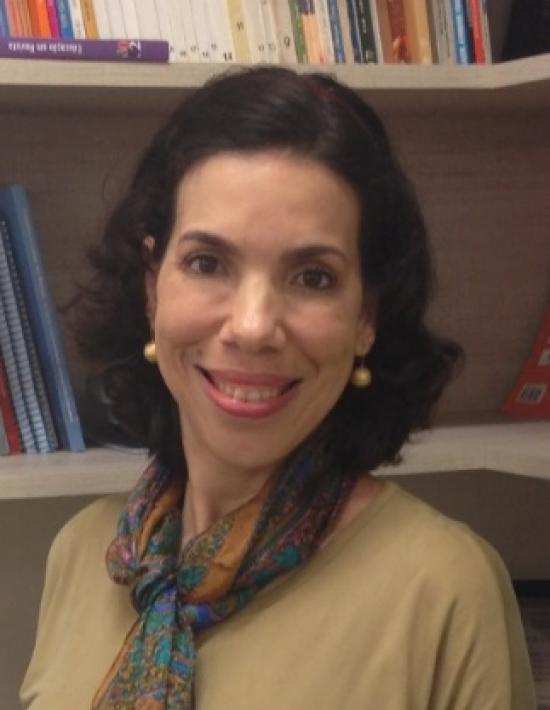SYMPOSIUM I
Interdisciplinary Approaches in Promotion of Physical Education and Health
This symposium, entitled Interdisciplinary Approaches in Promotion of Physical Education and Health, focuses on innovative ways in which physical education and health can be promoted for holistic health and wellbeing. Four international presenters: one each from the USA, Brazil, Czech Republic and New Zealand will present their research informed work. The first presentation highlights a science-based solution to the global obesity crisis. In particular the approach outlined focuses on a model that is used to empower young people to understand and act on the importance of making healthy lifestyle choices to enhance quality of living. The second presentation outlines approaches regarding the development of physical activity and health promotion through physical education, sport and leisure programmes. Main challenges will be identified, with the emphasis of understanding these from a Brazilian context that acknowledges a number of important consideration, not least, the need to connect theory with practice. The third presentation focuses on the potential philosophical aspects of being in the outdoor environment and making connections between a winter trekking experience, holistic health, education and personal development. Experiential learning is highlighted, so too is the relationship between transcendence, spiritual imagery, being in the now, and personal meaning making. The fourth and final presentation highlights how the potentiality and legitimacy of physical education and holistic wellbeing can be enhanced through drawing on the philosophy of Olympism –a culturally relevant experiential process of learning an integrated set of life principles through the practice of sport. Clear distinctions will be made between the philosophy of Olympism and the dominant forms of Olympic education. The presentation concludes by arguing Olympism is arguably the most educative explanation legitimising physical education to emerge in the last 100 years.
Chair and Presenter

Prof. Dr. Ian CULPAN
Director, New Zealand Centre for Olympic Studies
Scientific Adviser, GCH
Trustee of the International Alpha Upsilon Chi
Immediate Past President Oceania Region Federation International e d’Education Physique (FIEP)
School of Health Sciences
University of Canterbury
New Zealand
Email: ian.culpan@canterbury.ac.nz
Prof. Dr. Ian Culpan is the of Director the New Zealand Centre for Olympic Studies and the former head of the School of Sport and Physical Education at the University of Canterbury, New Zealand. His research interests are in physical education/teacher education (PETE), Curriculum Development, Physical Education Pedagogy, Olympism and its pedagogy, and the social and educative value of physical education, physical activity and sport where he has published widely on these topics. He has led and directed many national initiatives in: physical education, including national curriculum and qualifications development, and Olympic related matters. Prof. Culpan served three years as the Vice-President of Physical Education New Zealand (PENZ). He has been the national Journal Editor and is on the editorial board of 5 international journals. He is the immediate Past President of the New Zealand Olympic Academy, is the immediate past President (Oceania) for the Federation Internationale d'Education Physique (FIEP) and is a member of the Global Forum for Physical Education Pedagogy and Scientific Adviser for the Global Community Health Forum.. Prof. Culpan has twice been awarded the International Olympic Committee Trophy for Education and Sport (2000) and 150 years Pierre de Coubertin, Sport a School of Life (2013). He was the 7th person to be awarded the Sir Alexander Gillies Medal for Physical Education in NZ (2001). Prof. Culpan has served on UNESCO’s 2013 expert advisory group for developing Policy on Quality Physical Education and is a Trustee of the Sports Museum of New Zealand; and FutureSport.
Olympism and Olympic Education within Physical Education: Promoting Holistic Wellbeing
Olympism as a philosophical concept and dominant forms of Olympic education in schools are highly contested and challenged for their relevancy in a contemporary world. Some scholars argue that Olympism is simply a relic of the past with little educative or social value or legitimacy. Others argue, that despite the criticism and its contested nature, Olympism remains the most coherent and systematised ethical and educative explanation of physical education and sport to have emerged. In a similar manner, Olympic education is critiqued for its ideological promotion of the Olympic Movement. This presentation argues that if Olympism is to have educative value and relevancy it needs to be a strong component of school physical education. To develop this linkage a clear differentiations between Olympism and dominant forms of Olympic education will be made. To maximise Olympism within physical education, strong links to the development of holistic wellbeing will be formulated in order to make its educative and social value overtly evident. To bridge the praxis nexus for Olympism education, the presentation will suggest a critical constructivist pedagogical framework. It will be argued that a critically constructivist framework will allow learners to engage with the principles of Olympism; holistically critique physical activity and sport; and develop a critical consciousness that encourages the development of holistic wellbeing. This socio-critical positioning of Olympism education within physical education, focusing on the development of wellbeing, will draw on specific learning examples developed specifically for teacher education programmes that align with the New Zealand Curriculum.

Prof. Dr. Ivo JIRÁSEK
Vice-President, International Society for the Social Sciences of Sport
Member of executive committee, European Association for the Philosophy of Sport
Professor of Kinanthropology
Department of Recreation and Leisure Studies
Faculty of Physical Culture
Palacky University Olomouc
Czech Republic
E-mail: ivo.jirasek@upol.cz
Prof. Dr. Ivo Jirásek is a professor, guarantor of recreology study program (recreation and leisure study) and have been vice-dean for research (2010-2016) at Faculty of Physical Culture, Palacky University Olomouc, the Czech Republic. He specializes in philosophical aspects of movement culture (game and play, experience, body, movement), is interested in experiential and outdoor education, and topic of spirituality and spiritual health. He delivered 32 keynote and invited speaker lectures and 82 presentations in other conferences and congresses. He has written 4 monographs, 22 chapters in books and numerous articles in peer-reviewed journals (Quest; Journal of the Philosophy of Sport; Sport, Education and Society; Sport in Society; Implicit Religion; Acta Gymnica and so on). He used to cooperate for 20 years as an instructor and lector in the Vacation school of Lipnice - Outward Bound Czech Republic and he still continues in cooperation as a team member of preparation and realization some courses (especially winter mountaineering and camping). He was and is a member of associations and member of executive committees focused on philosophy of sport, kinanthropology and pedagogy (education), for example International Society for the Social Sciences of Sport, International Association for the Philosophy of Sport, European Association for the Philosophy of Sport, British Philosophy of Sport Association, Czech Kinanthropological Society among others. He is also a member of the Czech Olympic Academy.
New Dimension of Leisure Philosophy: Physical Activity in Winter Nature and Health
This presentation deals with the potential philosophical aspects of being outdoors in winter, with a connection between the fortnight spent trekking through the winter landscape and holistic health in terms of the educational potential and personal development. Childhood and youth have been radically changed by technologies over the last two decades. Sedentary behavior and obesity, preferences of virtuality to reality, incompetence to tie interpersonal relationship have been the most visible features of contemporary adolescent, particularly when comparing masculine people to previous generations. That is why experiential education, which utilizes challenge, adventure, and other unsafe situations intentionally and purposely is so important for healthy development of young generation. Participants’ experiences during a winter expeditionary course on snowshoes considers the real being phenomena as highly important. This reality is composed of a community of other people, the perception of group connectedness and a sense of community among participants is increasing, so hiking and camping in a winter landscape helps with a development of social health. It is also hard physical activity which increases physical health. Also participants’ relationships to themselves is expressed primarily in the phenomena of reflection: that is, in thinking about one’s own life, in thinking about a deliberate change in lifestyle, in perfecting oneself, in the directing one’s life towards self-actualization and achieving inner sincerity. So also mental health is developed by being in winter outdoor. Finally, the relationship to transcendence is associated with the use of spiritual imagery, and with emphasis placed on being fully in the present. Newly establish part of holistic health description, it means spiritual health, is visible in the holistic level of the meaning of the experience.

Dr. Michelle LOMBARDO
President, The OrganWise Guys Inc.
United States of America
E-mail: michelle@organwiseguys.com
Dr. Michelle Lombardo is the President of certified Women Owned Business, The OrganWise Guys Inc., and the author of The OrganWise Guys series, which promotes the benefits of good nutrition and preventive healthcare practices through creative characters playing the roles of the vital body organs. She has written 46 books, 10 activity books, eight Speaker’s Kits and was Creative Director on eight OrganWise Guys DVDs, 72 vignettes and one educational CD-ROM. She also conducts dozens of “train the trainer” sessions and keynote addresses on these materials each year nationwide. Dr. Lombardo is also the Project Manager of the W.K. Kellogg Foundation-funded Thriving Communities, Thriving Children II (TCTC2); a project designed to improve the health and literacy status of young children in three Mississippi counties. TCTC2 (2017-2020) expands upon the success of TC2 (2013-2016), also managed by Lombardo, which saw interventions that addressed nutrition and physical activity in Head Start Centers in underserved communities in MS and LA. Results of the program used in TC2, The OrganWise Guys Comprehensive School Program, are published in the Journal of the American Dietetic Association, the American Journal of Public Health and the Journal of Healthcare for the Poor and Underserved. Dr. Lombardo received her D.C. from Life College of Chiropractic and was in private practice for 10 years prior to starting The OrganWise Guys Inc., now in its twenty-fifth year of operation.
Engaging the Whole School, Whole Child, Whole Community to Successfully Address Childhood Obesity
This presentation highlights a science-based solution to the global obesity crisis combined with a replicable model for dissemination. To achieve optimal health and wellness, good nutrition and physical activity promotion must be a priority. Our mission is to help children and families access easy-to-understand materials that provide simple health messages using lovable characters that are organs of the body, such as Hardy Heart and Sir Rebrum, the brain. Print, multi-media, web-based and digital content are designed for educators and caregivers to engage young children (and their families) in a way that makes them excited to choose healthy foods and physical activity to take care of their bodies because they understand the why. The approach is to empower children to be healthy and smart from the inside out. To address the global obesity issue, OWG INC utilizes the OWG characters, materials and programs to help children understand the importance of making healthy lifestyle choices for a better quality of life. OWG INC coined a model where schools and Early Childhood centers act as “hubs” for community-wide obesity prevention. Other community locations like summer camps, after-schools, doctor’s offices, supermarkets, etc. act as “spokes” of additional obesity prevention activities. This model streamlines prevention efforts and helps communities use the same language and materials to reach a common goal. The research presented is published in top-tier journals on the school program (as well as new outcomes on the early childhood program), show statically significant improvements in children’s BMI percentiles, waist circumference, blood pressure and standardized test scores.

Prof. Dr. Nara OLIVEIRA
Executive Committee Member of BRICSCESS (BRICS Council of Exercise and Sport Science)
Head, Human Movement Sciences Department
Federal University of Sao Paulo
Brazil
E-mail: nararejanunifesp@gmail.com nara.rejane@unifesp.br
Prof. Dr. Nara OLIVEIRA is Associate Professor and Head of the Human Movement Sciences Department, Federal University of Sao Paulo. She works at the Undergraduate and Graduate Programs in Health. She is Executive Committee Member of BRICSCESS (BRICS Council of Exercise and Sport Science). She was co-Head of BRICS Inaugural Conference of Exercise and Sports Science - BRICSCESS 2017, held in Brazil. She holds a Masters Degree in Physical Education from the State University of Campinas – UNICAMP (2003) and a PhD in Education from the University of Sao Paulo – USP (2010), Brazil. She is currently leader of the Research Centre on Sport Policy and Leisure at Sao Paulo State, funded by the Ministry of Sport, whose research focuses on the Olympic Legacy in the context of sport and leisure policies in Brazil. Her research interests include: Physical Education and Health, Health education; Childhood Education and Health; Sports, Leisure and Health; Education Higher. She published 26 articles in national and international refereed journals. She organized two books and published 8 chapters in Education and Physical Education, in native language. She presented more than 70 papers in national and international scientific meetings.
Physical Education, Sport and Leisure in Brazil for Health promotion: Latin America Perspective
Concerns about Physical Education (PE), Sport and Leisure in Brazil for Health promotion are not new. In the last 20 years increasing attention has been given on the role and relevance of PE, Sport and Leisure, since the Brazilian health public policies highlighted the Physical Activity (PA) as the main element for the prevention of chronic deseases and promotion of healthy life. From this perspective, several programs of PA has been developed through the PE, Sport and Leisure. Also, the Brazilian Council of Health defined the PE as a Health Profession, with specific knowledge to promotion, prevention and health reabilitation. At the same time, the Brazilian Ministry of Health put in place public health programs focuses on prevention, with multidisciplinary health team, including the PE professional. However, despite of all public policies and scientific evidences regarding the linkage PA and health, only 30% of Brazilian population is physically active and more than 300.000 people die every year from deseases caused by lack of exercise. Within this scope, the aim of this presentation is to provide information regarding the development of PA and Health promotion through the PE, Sport and Leisure public programmes, analyzing the main challenges to the proper and efficiently development among the population. These challenges can only be understood in the context of some aspects linked each other: the Brazilian demography, the educational systemt, the PE teacher training, the development of research and the relationship between theory and practice.
